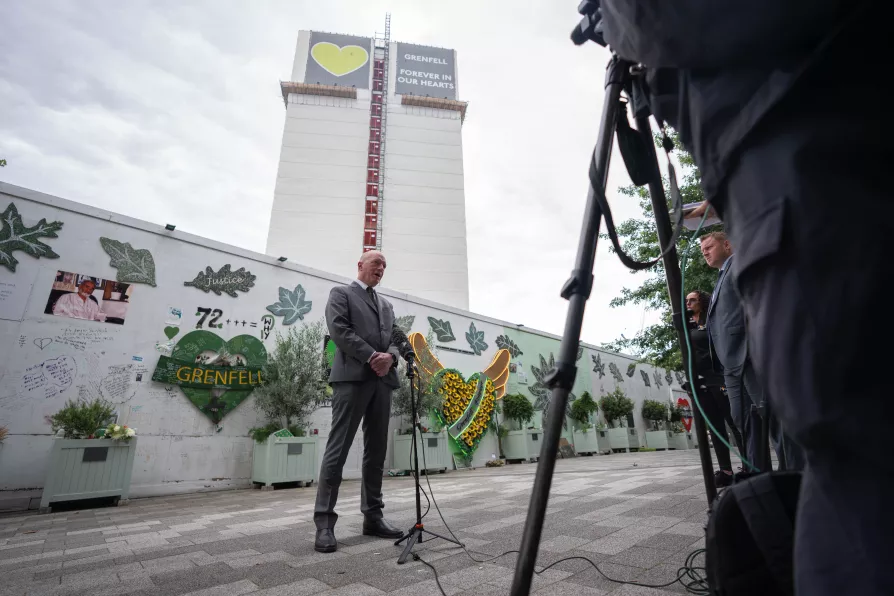Rubio's disturbing speech in Munich exposed the West's brutal plans — more imperialism, more colonialism, more white supremacy, says ROGER McKENZIE
Justice delayed, safety denied: Grenfell’s deadly legacy
Despite the damning report, cladding fires continue to threaten lives, and justice has not been done. MATT WRACK demands a radical overhaul of building safety regulations and public ownership of the inspection system

 JUSTICE DENIED: Matt Wrack speaking in front of Grenfell yesterday
JUSTICE DENIED: Matt Wrack speaking in front of Grenfell yesterday
THE final report of the Grenfell Tower inquiry has now been published. In over 1,500 harrowing pages, it details the corporate greed, political decisions and criminal complacency that led to the worst domestic fire in modern British history.
Following years of interviews and evidence, and after repeated delays, the families, bereaved and survivors of Grenfell finally have an official account of the causes of the fire.
This is a time for remembering the 72 lives so tragically lost. It serves as a reminder of the deep scar that the Grenfell Tower fire has left on the community. The Fire Brigades Union (FBU) shares their grief and anger, and echoes continued calls for justice.
Similar stories

MPs say ministers have 'heads in sand' on safety











